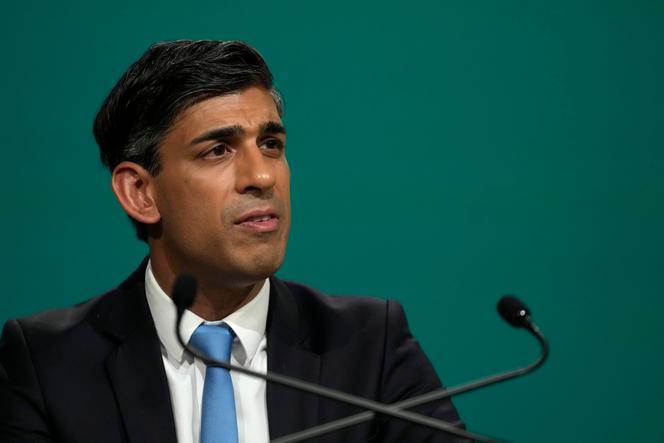


The British government is significantly tightening its immigration policy, at the risk of hurting the country's economy, already handicapped by labor shortages. On Monday, December 4, Home Secretary James Cleverly announced an increase in the minimum annual income required to settle in the UK, from £26,200 to over £38,700.
Access to the NHS, the public healthcare system (free for Britons), will be charged at over £1,000 a year. Non-British workers in the welfare sector will no longer be able to bring in their families. Finally, employers will no longer be able to recruit foreigners on wages 20% below the minimum wage in sectors under pressure (construction, education, etc.).
Prime Minister Sunak's aim, under intense pressure from his Conservative party, is to drastically reduce legal migration. It has reached a historically high level despite the end of free movement for Europeans following Brexit and the introduction of a work visa system. "We want to reduce annual arrivals by at least 300,000," Cleverly told the House of Commons.
According to revised figures published on November 23 by the Office for National Statistics (ONS), net migration to the UK (the difference between arrivals and departures) reached 745,000 in 2022. It was half that in 2016, at the time of the Brexit referendum, even though one of the main arguments of supporters of divorce from the European Union (EU) was to "regain control" of the country's borders. In other words, the promise made in 2010 by Conservative David Cameron on his arrival at Downing Street to reduce migration to less than 100,000 annual arrivals is very far from having been kept.
If European net migration has logically plunged since Brexit, (it has become negative, with 86,000 departures of EU citizens between June 2022 and June 2023), it has been largely replaced by people from Africa (Nigeria) and Asia (India, China, Pakistan). Despite his anti-migrant rhetoric, former Prime Minister Boris Johnson introduced a rather liberal post-Brexit regime in 2021, allowing students and work visa holders to bring in their relatives, and introducing exemptions from wage floors for jobs in priority sectors (welfare and NHS workers).
In addition to complicating the lives of many British citizens (who will have to prove an annual income of at least £38,700 to bring their non-British spouse to the UK), these new rules, applicable from 2024, are likely to make life even more difficult for hospital managers. Some 19% of NHS employees are non-British citizens, and despite this heavy reliance on foreign labor, the NHS is still short of 40,000 nurses. Having failed to invest sufficiently in training its nursing staff for decades, the UK is also suffering from a shortage of doctors.
You have 30% of this article left to read. The rest is for subscribers only.
